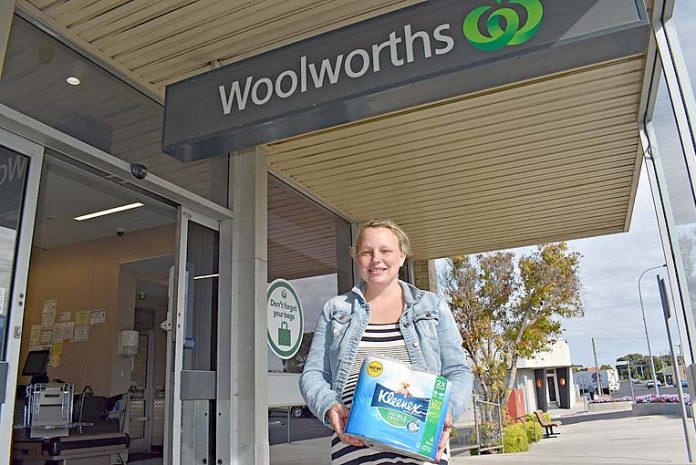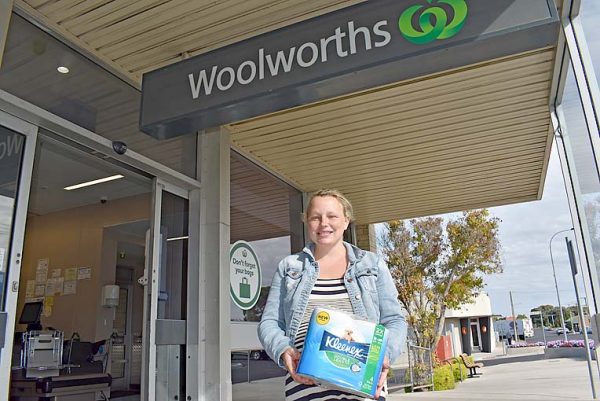

RATIONING of toilet paper started at Woolworths yesterday morning in response to nationwide panic buying prompted by the spread of the coronavirus.
Despite the production of tens of millions of toilet rolls each year at the nearby Kimberly-Clark Australia Millicent Mill, the Millicent store is limiting customers to a maximum of four packs each.
Signs advising customers of the limit appeared on its Davenport Street doors and shelves just after the opening time of 7am.
Similar measures have appeared at the company’s outlets across Australia.
Furner resident Sally Bateman was aware of the toilet paper rationing ahead of her shopping trip to Millicent yesterday, but said she would ensure her family had adequate supplies of toilet paper.
“I am going into Mount Gambier Hospital in three weeks’ time to have our sixth child,” Ms Bateman said.
“That means we have six under the age of seven.”
The toilet paper rationing issue has been a talking point in the community.
Millicent manager Benjamin Peck declined to comment, while the Woolworths Sydney-based media unit declined to answer specific questions about the presumed link between panic buying and the coronavirus.
In a statement, the Woolworths media unit said the quantity limit on toilet paper packs was to ensure more customers have access to the products.
“The purchase limit of four packs per transaction applies in-store and online and will help shore up stock as suppliers ramp up local production in response to higher than usual demand,” stated the company,” Woolworths stated.
“Our teams are continuing to work hard on restocking stores with extra deliveries of long-life food and household staples from our distribution centres.
“The vast majority of the products ranged in our stores remain available for our customers as normal.
“We apologise to customers for the inconvenience caused by temporary stock shortages and thank them for their patience.”
KCA Millicent Mill management confirmed production of toilet paper and tissues has recently increased, but it has not been quantified.
It has been publicly stated the increase was within the production capacity of the plant and it had adequate raw materials in hand including imported pulp.
In a statement, a KCA spokesperson said the Millicent Mill was continuing to operate around the clock.
“Our production lines are working 24/7 to address the increased, short-term demand,” the spokesperson said.
“We’re also working closely with our customers to replenish supermarket shelves faster.”
Meanwhile, the panic buying of hand sanitizers has also spread from the capital cities to parts of Millicent with the shelves bare at Woolworths.
Fosters Foodland manager Dave Foster said there had been increased sales of hand sanitizers at the Kentish Place supermarket.
“We still have adequate supplies,” Mr Foster said.
Elsewhere in the Millicent central business district, coronavirus has yet to have an impact on a long-running rural supplies business.
Geoff Thompson has operated Millicent Industrial Services for the past 29 years and said a better idea might be known in about two months’ time.
The store draws customers from as far away as Kingston and Penola, but none are in the panic buying mode for goods.
“However, two of my suppliers have containers waiting for shipment from docks in China,” Mr Thompson said.
“One has three containers there and another has 13.
“Around 80pc of the items I stock are made in China and this has increased over the year.
“Manufacturing has gone offshore as the costs are too high in Australia”.







